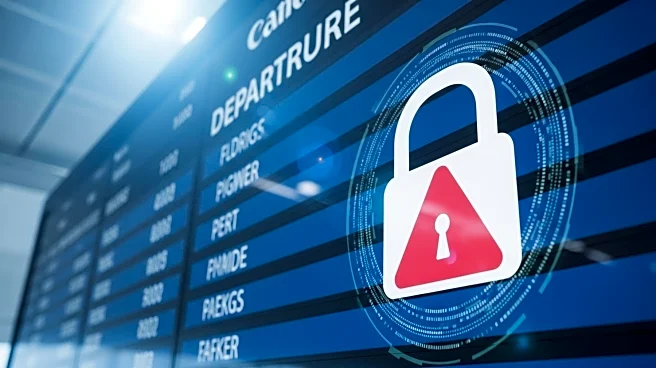What is the story about?
What's Happening?
A cyberattack has targeted Collins Aerospace, a company responsible for check-in and boarding systems at several major European airports, including Heathrow, Berlin, and Brussels. The attack has led to significant disruptions, with numerous flight cancellations and delays reported. Collins Aerospace's parent company, RTX, acknowledged the cyber-related disruption affecting its MUSE software, which is crucial for electronic customer check-in and baggage drop operations. The company is working to resolve the issue, while airports are implementing manual check-in procedures to mitigate the impact. Passengers have been advised to check their flight status before traveling and to expect longer waiting times.
Why It's Important?
The cyberattack highlights vulnerabilities in the aviation industry's reliance on digital systems for operational efficiency. Such disruptions can have widespread effects, impacting thousands of travelers and causing economic losses for airlines and airports. The incident underscores the need for robust cybersecurity measures to protect critical infrastructure and maintain service continuity. As airports and airlines increasingly depend on technology, ensuring the security of these systems becomes paramount to prevent future disruptions and safeguard passenger experiences.
What's Next?
Airports and airlines are likely to review and strengthen their cybersecurity protocols to prevent similar incidents. The aviation industry may see increased investment in cybersecurity solutions and collaboration with technology providers to enhance system resilience. Regulatory bodies might also consider implementing stricter cybersecurity standards for companies involved in airport operations. Passengers can expect ongoing updates from affected airports as they work to restore normal operations and minimize delays.















